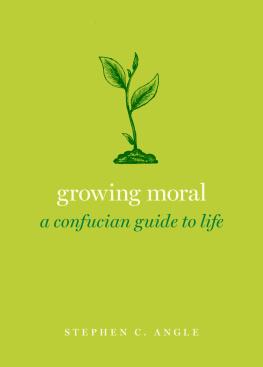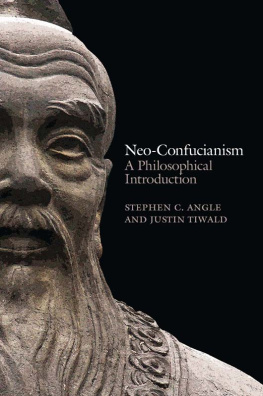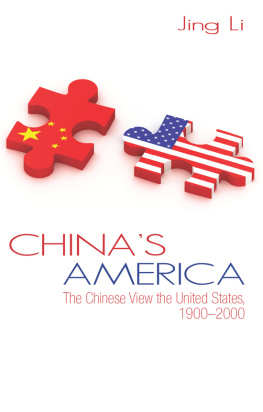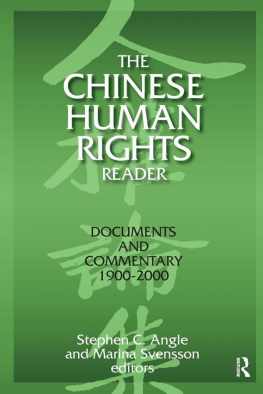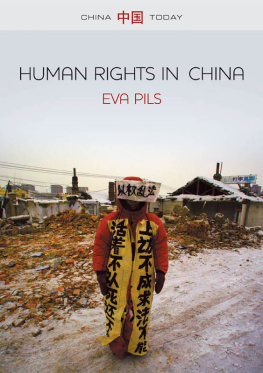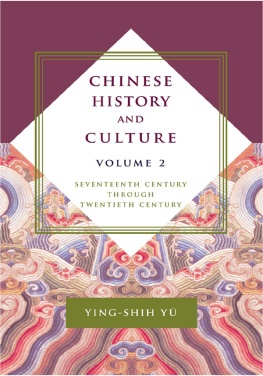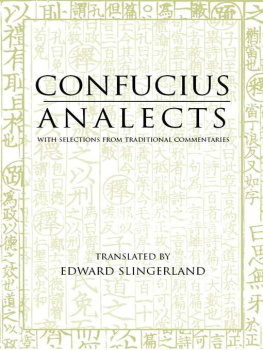THE
CHINESE
HUMAN
RIGHTS
READER
THE
CHINESE
HUMAN
RIGHTS
READER
DOCUMENTS
AND
COMMENTARY
19002000
Stephen C. Angle
and Marina Svensson
editors
AN EAST GATE BOOK
First published 2001 by M.E. Sharpe
Published 2015 by Routledge
2 Park Square, Milton Park, Abingdon, Oxon OX14 4RN
711 Third Avenue, New York, NY, 10017, USA
Routledge is an imprint of the Taylor & Francis Group, an informa business
Copyright 2001, Taylor & Francis. All rights reserved.
No part of this book may be reprinted or reproduced or utilised in any form or by any electronic, mechanical, or other means, now known or hereafter invented, including photocopying and recording, or in any information storage or retrieval system, without permission in writing from the publishers.
Product or corporate names may be trademarks or registered trademarks, and are used only for identification and explanation without intent to infringe.
Library of Congress Cataloging-in-Publication Data
The Chinese human rights reader: documents and commentary, 19002000 / edited by Stephen C. Angle and Marina Svensson.
p. cm.
Includes bibliographical references and index.
ISBN 0-7656-0692-5 (alk. paper) - ISBN 0-7656-0693-3 (pbk.: alk. paper)
1. Human rights - Chine - History -20th century. 2. Human rights - China - History - 20th century - Sources. 3. Civil rights - China - History - 20th century. 4. Civil rights - China - History - 20th century - Sources. I. Angle, Stephen C, 1964 - II. Svensson, Marina, 1961
JC599.C6 C485 2001
323.09510904-dc21 | 2001020699
CIP |
ISBN 13: 9780765606938 (pbk)
ISBN 13: 9780765606921 (hbk)
Contents
Anonymous
Liang Qichao
Anonymous
Zhinazi (Pseudonym)
Zou Rong
Liu Shipei
Xu Yucheng
Ma Weilong
Zhang Shizhao
Chen Duxiu
Chen Duxiu
Li Dazhao
Gao Yihan
Hu Shi, Jiang Menglin, Tao Menghe, Wang Zheng, Zhang Weici, Li Dazhao, and Gao Yihan
Tan Mingqian
Gao Yihan
Liang Shunting
Sun Yatsen
Anonymous
Zhou Fohai
Hu Shi
Luo Longji
Peng Kang
Wu Jingxiong
Qiu Hanping
China League for the Protection of Civil Rights
Hu Shi
Provincial Council of Shandong Province
Mao Zedong
Zhou Jingwen
Zhang Junmai (Carsun Chang)
China Democratic League
P.C. Chang (Zhang Pengjun)
Pu Zhongwen, He Shifen, and Feng Guojiang
Zuo Ai
Yin Haiguang
Qian Si
Mab Huang
Wei Jingsheng
China Human Rights League
Yu Fan
Du Guo
Xiao Weiyun, Luo Haocai, and Wu Xieying
Lan Ying
Hang Liwu
Xu Bing
Fang Lizhi
Chinese Human Rights Movement Committee, Beijing
Shi Yun
Li Buyun
Wei Jingsheng
Information Office of the State Council
Liberal Democratic Party of China
Zhang Wenxian
Xia Yong
Liu Huaqiu
Liu Nanlai
Liu Junning
Ding Zilin, Lin Mu, Jiang Qisheng, Jiang Peikun, and Wei Xiaotao
Hu Ping
Liu Qing
League for the Promotion of a National Human Rights Commission
Chen Shuibian
Stephen C. Angle is Assistant Professor of Philosophy at Wesleyan University. He is the author of Human Rights and Chinese Thought: A Cross-Cultural Inquiry (2002) and of articles on early Chinese rights thinkers and on Confucianism. His work focuses on understanding cross-cultural ethical differences and the possibilities for dialog, and on the relations between Confucianism and twentieth-century Chinese ethical and political values.
Marina Svensson is Assistant Professor at the Department of East Asian Languages, Lund University. She is the author of Debating Human Rights in China, 18991999: A Conceptual and Political History (2002), and of articles on human rights, democracy and Chinese politics. Her work focuses on the theory and practice of human rights in the PRC, legal reform, political and institutional changes, and social and political protests.
First and foremost we would like to thank those who have helped us with the translations in this volume. We are very grateful to Elizabeth A. Cole, Stephen S. Chou, and Zhou Yiyun, who produced excellent draft translations for a majority of the texts in the Reader, This project could not have been completed without their considerable efforts. Special thanks are also due Joan Judge, who suggested and translated the essay by Ma Weilong, and Timothy B. Weston, who suggested and translated the selection from Zhang Shizhao. Tim in turn would like to thank Shen Zhijia and Jia Jinhua for their help with his translation. The editors are responsible for the final state of all translations and for any mistakes that remain.
During this work we have also been helped and encouraged by many other people. Students in various incarnations of the class Human Rights and Chinese Philosophy at Wesleyan University were the initial impetus for a translation project, and we thank them for their comments on the drafts they used. For encouragement and comments on other aspects of the Reader, we would like to thank Chine Chan, Ron-guey Chu, Andrew Nathan, James Seymour, Sophia Woodman, and Peter Zarrow. We are also grateful to Mab Huang and Peter Huang for suggestions and help with texts from Taiwan, to James Whitman for helping us identify a number of German legal scholars, and to Keiko Kockum for help with transcribing the names of Japanese scholars. We would also like to thank Zhu Xiaomiao and Li Jian for assistance with obscure passages in some of the texts.
Some of the texts first appeared in a special issue of Contemporary Chinese Thought for which we acted as guest editors, and we are very grateful to Carine Defoort and Nicolas Standaert for giving us that opportunity, as well as for cheering on the book project. For useful ideas on how to pull off a work like this, we want to thank Michael Schoenhals.
Our thanks, finally, to Doug Merwin and the staff at M.E. Sharpe for working with us to bring this project to completion.
I. Rights and Chinese Thought
The past decade has seen a vigorous discussion of human rights both within China and between China and other nations. It is easy to think of China as a latecomer to human rights discourse, in part because during most of the post-1949 period, rights and human rights were taboo subjects in the Peoples Republic. In fact, however, over the last one hundred and more years China has had a rich and contested discourse about rights. By translating essays on rights and human rights from throughout the twentieth century, we aim to reintroduce themes from this forgotten discourse into contemporary debates. These essays show that the discussion of rights in China has long been motivated by indigenous concerns, rather than imposed from without, and it has been interpretive and critical, rather than passive and imitative. This introduction aims to situate the essays we have translated by discussing the terms of the discourse and then briefly sketching its history.


